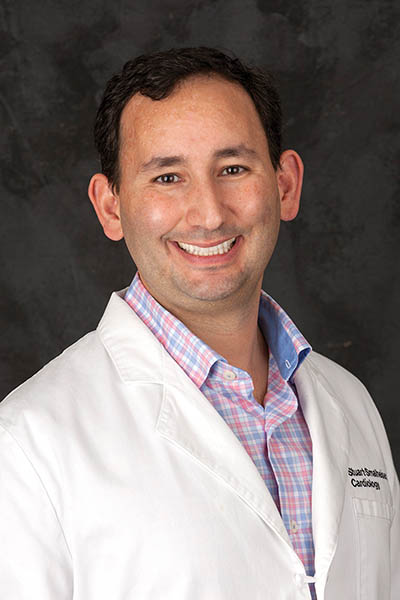
Your heart does a lot for you, so it’s important to give it some love in return. Eating a healthy diet, getting plenty of exercise and staying on top of annual checkups are all great ways to protect your heart health. While screenings for high blood pressure and high cholesterol can help inform your risk for heart disease, there’s another tool that may help: a heart scan called a coronary artery calcium screening.
“While patients might be at risk of heart disease, they may not know how much risk they have,” says board-certified interventional cardiologist Dr. Stuart Smalheiser, who sees patients at Beaufort Memorial Heart Specialists in Beaufort. “Getting a heart scan is a safe and easy way to further assess your risk, so you and your provider can make informed plans for preventive care or treatment.”
Read More: Maintain a Healthy Heart Rate With These Tips
What Is a Heart Scan?
A coronary artery calcium screening is a noninvasive test that uses computed tomography (CT) imaging to help determine your risk of a heart attack, even before you have symptoms of heart disease.
“Age, unhealthy foods, lack of exercise and genetics can lead to your arteries hardening, which can occur due to plaque buildup,” Dr. Smalheiser says. “As plaque builds up, it calcifies and can lead to debilitating angina, or chest pain. It can also lead to a heart attack.”
Images taken during a heart scan show how much calcified plaque is inside your coronary arteries. The more calcified plaque you have, the more likely you are to have coronary artery disease, which increases your risk of heart attack and stroke. After the scan, you will be given a number called your calcium score that shows your risk.
Read More: Coronary Calcification: A Warning for Your Heart
Who Needs a Heart Scan?
While everyone needs routine cholesterol and blood pressure screenings, a heart scan is not recommended for every adult.
“Ideal candidates for a coronary artery calcium screening are patients who may be at moderate risk for future heart events,” Dr. Smalheiser says. “Often, these patients have close family members with prior heart disease or have other risk factors for heart disease.”
You may need a heart scan if you are a man over 40 or a woman over 50 with one or more of the following risk factors:
- Diabetes
- Excess weight
- Family history of heart disease or heart attacks
- High blood pressure
- High cholesterol
- History of smoking
- Sedentary lifestyle
If you have symptoms of heart disease, your provider can recommend other tests to determine your risk for major cardiovascular events. Coronary calcium scans are intended for people without symptoms.
Read More: 7 Tips for Managing a Family History of Heart Disease
What Happens During a Heart Scan?
A CT scanner is a special type of X-ray machine that uses a low dose of radiation. During a coronary artery calcium test, you will lie down in the CT scanner, and the machine will take pictures of your heart. You will also be attached to an electrocardiograph machine via several electrodes on your chest to monitor your heart activity. You will need to hold your breath for a few seconds every so often to ensure technicians can get the best imaging.
Coronary artery calcium screenings don’t require much preparation. On the day of the test, you’ll need to avoid smoking and caffeinated beverages, such as coffee and tea. You’ll also be instructed not to use powders or lotions on your chest.
The test takes only around 10 to 15 minutes.
Making Sense of Your Calcium Score
After your heart scan, you will receive a number called an Agatston score, or calcium score, based on the amount of calcium deposits revealed during the test.
- If your score is between 1 and 100, you have mild plaque buildup.
- If your score is between 100 and 400, you have moderate buildup.
- If your score is over 400, you have a higher risk for a heart event.
Keep in mind, however, that your calcium score is just one of several tools your provider can use to help assess your risk for heart disease. Your provider can review your score alongside other test results and your health history to give you a complete picture of your heart health.
“Knowing your coronary artery calcium score will help your provider tailor a plan to improve your heart health,” Dr. Smalheiser says. “You can count on them to help you with any necessary lifestyle changes to help manage your risk for future heart events.”

Want to find out if a heart scan is right for you? Schedule an appointment with a member of our heart care team in Beaufort or Okatie.

